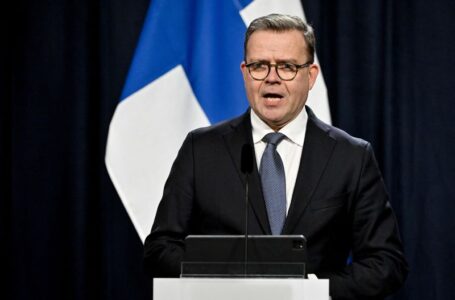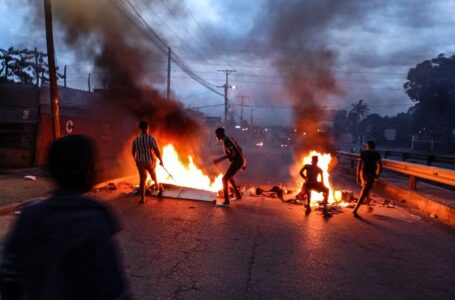At least 14 security personnel killed in ‘ambush’ by former Assad forces, new Syrian authorities say
MIC identifies possible areas for investments


THE MAHARLIKA Investment Corp. (MIC), which is tasked to oversee the Philippines’ first sovereign wealth fund, is looking at potential investments in key sectors such as infrastructure, energy and transportation.
The MIC held its first board meeting on Wednesday, as it seeks to fully operationalize the Maharlika Investment Fund (MIF), according to a statement from the Department of Finance (DoF).
MIC President and Chief Executive Officer (CEO) Rafael Jose D. Consing, Jr. said that the wealth fund could potentially invest in the power, agroforestry industrial urbanization, mineral processing, tourism, transportation, and aviation sectors.
The MIC, which was established under Republic Act (RA) No. 11954, is responsible for mobilizing and utilizing the country’s first sovereign wealth fund for investments in transactions that would generate optimal returns.
“I look forward to your cooperation and support as we work together in mobilizing greater investments in the country’s growth-enhancing sectors, while upholding the highest standards of accountability, fiscal responsibility, and good governance,” Finance Secretary Benjamin E. Diokno told the MIC board during the meeting. He sits as the board’s chairperson in an ex-officio capacity.
“The enactment of the Maharlika Investment Fund complements recent policy initiatives, such as the new public-private partnership policy framework, the approval of 197 high-impact infrastructure flagship projects, and liberalization policies that have further opened the Philippines to foreign investments in key sectors,” Mr. Diokno added.
During the meeting, the board approved the presented MIC’s capitalization scheme amounting to P125 billion.
Under the law, state banks Land Bank of the Philippines (LANDBANK) and Development Bank of the Philippines (DBP) are required to contribute P50 billion and P25 billion, respectively, to the initial capital of the fund.
The National Government is also being counted on to contribute P50 billion. The MIC has an authorized capital stock of P500 billion.
President Ferdinand R. Marcos, Jr. signed the Maharlika fund bill into law in July despite concerns raised by economists, including questions on the possible negative impact on the operations of state banks.
Mr. Marcos had said last year that the fund would be fully operational by the end of 2023.
“Usually, a day or two does not really matter. However, given the enormous opportunity cost of this fund, every second counts,” Leonardo A. Lanzona, who teaches economics at the Ateneo de Manila University, said in a Facebook Messenger chat.
“So, the three to four days of delay is already weighing heavily on people,” he added.
During the meeting, Mr. Consing was quoted by a Palace statement as saying the investment body will operate with “utmost” openness and “rigorous” accountability.
Mr. Lanzona said these statements are “not enough to convince people about the need” of the wealth fund.
“For one thing, there has been no accounting done as to the negative effects of this fund on the operations of the LANDBANK and DBP,” he added, noting that the fund has significant effects on farmers and small-scale entrepreneurs who rely on the two state banks.
Last year the two banks sought regulatory relief from the Bangko Sentral ng Pilipinas for their contributions to the Maharlika fund.
Also during the meeting, Mr. Consing updated the board on the MIC’s startup activities such as staffing and recruitment and the hiring of its management team.
Aside from Mr. Diokno and Mr. Consing, the MIC board members include LANDBANK President and CEO Ma. Lynette V. Ortiz, DBP President and CEO Michael O. de Jesus, and MIC directors Vicky Castillo L. Tan, Andrew Jerome T. Gan, German Q. Lichauco II, and Roman Felipe S. Reyes.
The board also appointed the Bureau of the Treasury as the interim fund manager of the MIC.
“I am confident that we have a formidable team to steer the fund effectively towards transformative investments for the Philippine economy,” Mr. Diokno said.
The MIC’s next board meeting is scheduled in the fourth week of January. — Keisha B. Ta-asan and Kyle Aristophere T. Atienza











